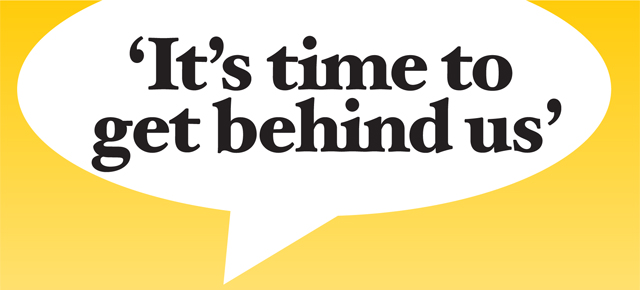Our latest poll of passenger transport professionals serves as a large focus group, gauging the mood within the sector. Do you share their concerns?
Much has changed over the past year. It’s now possible, for example, to travel on UK public transport without any restrictions, and passenger numbers have been moving upwards, but they remain well short of pre-Covid levels.
A year ago our 2021 The State of UK Public Transport survey revealed remarkable optimism among public transport professionals about the future of their sector, despite the obvious and immediate challenges. But, a year and a bit later, our 2022 survey suggests that there has been some dampening of that optimism over the past year.
We teamed up with data specialists CitySwift again to survey 49 key passenger transport professionals, including many well known names in the sector. While the sample size requires caution with year-on-year comparisons, it is possible to observe some trends.
In the short term, patronage continues to be the big issue. 44.9% cited passenger numbers failing to return to pre-Covid levels as their main concern for the year ahead. Failure to achieve these levels of patronage will leave operators short of revenue at a time when their costs are spiralling – making service cuts inevitable unless the governments step in with more emergency support.
Funding also remains a worry (cited as the main concern by 30.6% of respondents), followed by traffic congestion (12.2%).
Our survey respondents want a vigorous campaign to encourage people back onto public transport. In other words, help reverse the damage done by the ‘avoid public transport’ message during the pandemic
What’s the most important thing governments can do to help? Our survey respondents want a vigorous campaign to encourage people back onto public transport. In other words, help reverse the damage done by the ‘avoid public transport’ message during the pandemic.
Other helpful actions included providing greater certainty about future financial support (26.5%) and providing more financial support (12.2%).
There is scepticism about whether this help will come, however. Asked to rate how supportive they expect the government to be towards the public transport sector over the next 12 months on a 1-5 scale, the average answer was just 2.6.
The pandemic has left negative legacies that will be very difficult to break down. The main one is an increase in car use, identified by 89.8% of respondents.
This has in part been caused by increased perception of public transport as unsafe, which was the next most commonly cited negative legacy of Covid (77.6%). The third most negative legecy (73.5%) is the erosion of key markets (eg. commuters).
Meanwhile, over half (53.1%) of respondents now say that increased difficulties in recruiting and retaining front-line staff are a negative legacy of Covid, up from 10.3% a year ago.
The main positive legacies have been enhanced cleaning regimes (cited by 56.3% of respondents) and accelerared use of data and technology (54.2%).
Looking towards the medium term, there is continued optimism about the prospects for public transport. Despite the challenges, almost half (49.0%) believe that public transport use will be ‘higher’ in 2030 than it was before the pandemic, with 28.6% believing it will be about the same. Less than a quarter (22.4%) believe it will be lower.
there appears to be less faith that efforts to achieve net zero will lead to policies that constrain car use and promote public transport. Our 2021 survey found that almost two-thirds (66.2%) expected this to happen, but this year less than half (46.9%) agreed
Part of the reason for this optimism must be efforts to achieve net zero at both national level and within individual cities. However, despite the UK hosting the COP26 climate change summit in Glasgow last autumn, there appears to be less faith that efforts to achieve net zero will lead to policies that constrain car use and promote public transport. Our 2021 survey found that almost two-thirds (66.2%) expected this to happen, but this year less than half (46.9%) agreed. More than a third (36.7%) now think that it’s ‘unlikely’ that net zero policies will boost public transport.
Bus priority measures are the green transport policy that our survey respondents believe we are most likely to see over the coming years. Meanwhile, a clear majority (58.3%) now expect to see road user charging.
Data and technology
Conducted in association with data specialists CitySwift, our survey – The State of UK Public Transport – also featured eight questions on the subject of data and technology. The findings from this section of the survey will be published in the next edition of Passenger Transport.
The State of UK Public Transport 2022 – Key findings of our survey
SHORT TERM:
What’s your main concern for the public transport sector in the year ahead? (Select one)
- Passenger numbers failing to return to pre-Covid levels (44.9%)
- Funding (30.6%)
- Traffic congestion (12.2%)
- Other (12.3%)
With bus and rail patronage still lagging some way behind pre-Covid levels, it’s not surprising that the most commonly cited concern for the year ahead was passenger numbers failing to recover. Other key concerns are funding and traffic congestion, which are both outside of the sector’s control.
What’s the most important thing your government could do to help your business/organisation? (Select one)
- A vigorous campaign to encourage people back onto public transport (42.9%)
- Provide more certainty about future financial support (26.5%)
- Provide more financial support (12.2%)
- Visa relaxations to help ease labour shortages (6.1%)
- Other (12.3%)
After the strong ‘avoid public transport’ message, many public transport professionals want a powerful campaign to encourage people to come back. This is seen as even more important than providing further financial support.
How supportive do you think the government will be towards the sector over the next 12 months?
- 1 (8.2%)
- 2 (36.7%)
- 3 (42.9%)
- 4 (12.2%)
- 5 (0%)
On a scale of 1-5, our survey respondents believe that government support of the UK public transport sector over the next year will be 2.6 (on average). This is a clear indication that many believe that much more could be done.
COVID LEGACIES:
What positive legacies do you think the Covid experience will leave public transport? (Select all that apply)
- Enhanced cleaning regimes (56.3%)
- Accelerated use of data and technology (54.2%)
- Agility demonstrated (eg. rapid implementation of new timetables) (50.0%)
- Flattening of the traditional peaks (34.5%)
- Improved relations with local authority partners and other stakeholders (34.5%)
- Goodwill and recognition from customers and communities (25.0%)
- Greater recognition of the importance of public transport (22.9%)
What negative legacies do you think the Covid experience will leave public transport? (Select all that apply)
- Increase in the use of private transport or vehicles (89.8%)
- Increased perception of public transport as unsafe (77.6%)
- Erosion of key markets (eg. commuters, high street shoppers) (73.5%)
- Increased difficulties in recruiting new or retaining existing front-line staff (53.1%)
The main negative legacy of the Covid experience is considered to be the increased use of cars. Nine out of ten survey respondents agreed with this. Increased perception of public transport as hazardous was runner-up. The main positive legacy remains cleaner buses and trains for passengers, followed by the accelerated use of data and technology.
As we emerge from Covid, do you expect to see a greater role for central and/or local government in specifying and paying for public transport? (Select one)
- Very likely (43.8%)
- Likely (33.3%)
- About the same (8.3%)
- Unlikely(8.3%)
- Very unlikely (6.3%)
Over three-quarters (77%) of those who responded to our survey think it’s ‘likely’ or ‘very likely’ that central and/or local government will play a greater role in specifying and paying for public transport. Only 15% think it’s unlikely.
MEDIUM TERM:
In 2030, how will public transport patronage compare to pre-pandemic levels? (Select one)
- Significantly higher (6.1%)
- Higher (42.9%)
- About the same (28.6%)
- Lower (22.4%)
- Significantly lower (0%)
With bus and rail patronage still languishing behind pre-Covid levels, it’s interesting to see that 49.0% of our passenger transport professionals believe that patronage will get there – and beyond – by the end of the decade.
Do you expect that efforts to achieve net zero will lead to policies that constrain car use and promote public transport? (Select one)
- Very likely (12.2%)
- Likely (34.7%)
- About the same (12.2%)
- Unlikely(36.7%)
- Very unlikely (4.1%)
With transport being the UK’s biggest carbon-emitting sector, and the one that has made the least progress with reductions, it’s logical to think that to achieve net zero will lead to policies that constrain car use and promote public transport. However, less than half (46.9%) think it this is ‘likely’.
What policies do you expect to see that would aid this transition? (Select all that apply)
- Bus priority measures (81.3%)
- Road user charging (58.3%)
- Low emission zones (52.1%)
- Local congestion charging schemes (50.0%)
- Greater support for active travel (47.9%)
- Enhanced integration (eg.transport hubs) (47.9%)
Bus priority measures are the green transport policy that our respondents consider most likely, but a majority (58.3%) expect to see road user charging.
This article appears inside the latest issue of Passenger Transport.
DON’T MISS OUT – GET YOUR COPY! – click here to subscribe!








